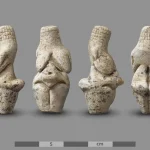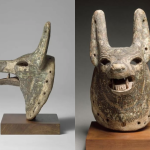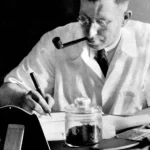The Eight-Hour War: The Human Cost of Saving a Life

The clock felt irrelevant, yet every tick was a life-or-death marker. Eight hours. That’s how long the surgeon stood under the blindingly bright, cold lights of Operating Room 3. It was a marathon of intense, high-stakes concentration where the only music was the rhythmic beep-beep-beep of the vital sign monitors.

The air in the room was heavy, thick with the metallic scent of antiseptics and a crushing tension that settled deep in the lungs. Hands had to remain steady, mind had to be a laser focus of anatomical knowledge and practiced skill. But beneath the surgical mask and the calm exterior, the heart was racing, pushing against the sheer weight of responsibility. The thought of failure—the potential loss of a life—was an invisible, deafening echo.
“In that room, you’re not allowed to be tired. You’re not allowed to be human,” says the surgeon, who asked not to be named, reflecting on the experience. “You’re a machine designed for precision. Every second mattered. Every incision, every decision, could mean the difference between a future and a final goodbye.”

Running on Hope, Not Strength
The final hours were an excruciating push. But when the last stitch was carefully placed, and the monitors stabilized into a reassuring, steady rhythm, the room breathed again. The patient was safe. A life was saved.
As the surgeon walked away from the sterile environment, peeling off the layers of gown and gloves, the body finally registered the cost. The intense relief was instantly swamped by an overwhelming wave of exhaustion. Legs trembled, unsteady from hours of standing. The mind, having been running at a sprint, suddenly slammed into a wall. The heart ached—a residue of the fear and adrenaline that had fueled the entire procedure.

The quiet, raw thought that echoed through the empty hallway was a painful truth: “You gave everything you had.”
We call them heroes—the doctors, the nurses, the healers who work ceaselessly in hospitals. And in a way, they are. But behind the title, they are simply humans—fragile, tired, and often running on sheer will and hope more than physical strength. They leave the operating room to face another shift, another emergency, another night where the needs of others will inevitably outweigh their own need for rest.
The Spark That Keeps the Fire Alive

This is a life defined by sacrifice: missed family dinners, postponed sleep, and the constant, crushing burden of carrying the deepest moments of human fragility. They quiet the fear in their own hearts to be the steady hand that guides others through theirs.
So, if you’ve read this far and feel a connection to this quiet battlefield, consider leaving a kind word.
Somewhere out there, in a brightly lit corridor or a dimmed nurse’s station, a doctor, a nurse, or a healer is fighting the silent battle against fatigue and fear. Your small, sincere message of gratitude might just be the spark—the tiny, external reminder—that helps them rally their strength and remember why they keep going when the stakes are highest.











